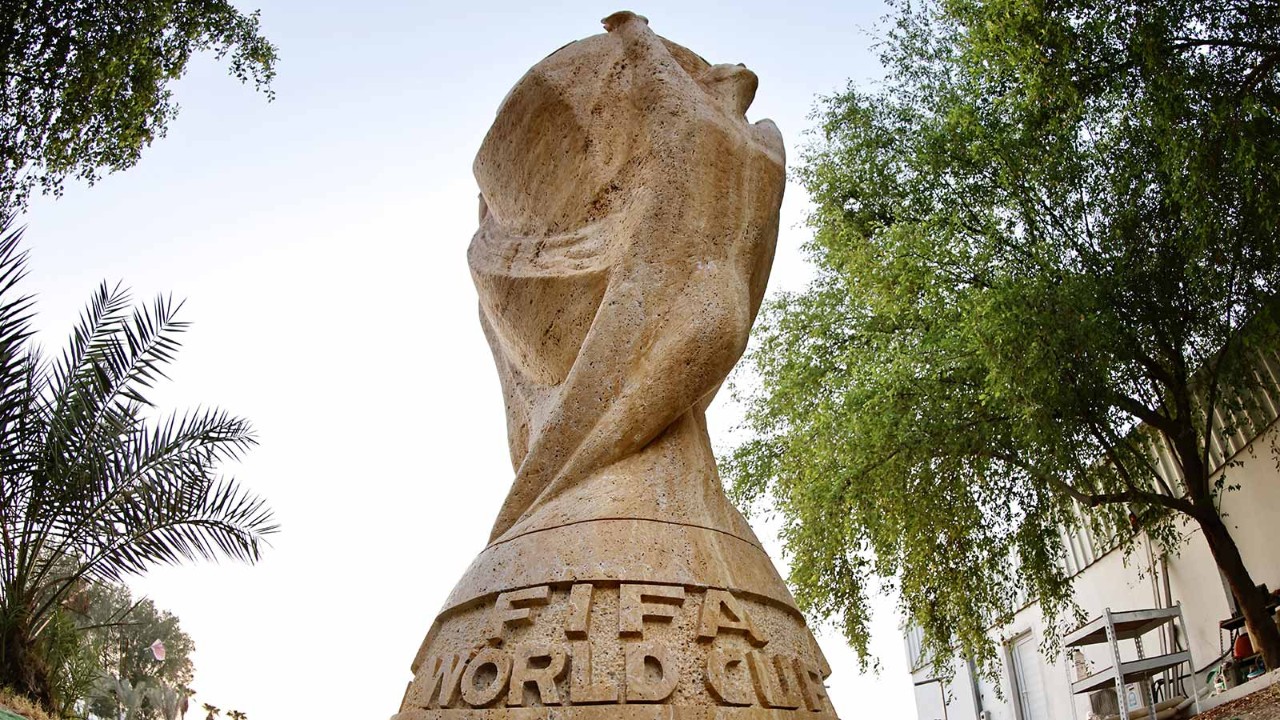
Qatar will make history in November when it becomes the first nation in the Middle East to host Fifa World Cup 2022 – one of the biggest sporting events on the planet. While it is definitely a feather in Qatar's cap on the sporting stage, the economic benefits of hosting the World Cup – or any major sporting event, for that matter – are less clear.
Around 1.2 million football fans are expected to visit Qatar for the month-long tournament, giving a huge tourism boost not just to Qatar but to surrounding countries, too. Neighbours Saudi Arabia, the United Arab Emirates (UAE), Oman and Kuwait are all expecting fans seeking to extend their stay in the region.
Beyond football
There are many figures floating around concerning the expected boost to Qatar’s economy, from US$17bn to US$20bn. However bullish the predictions are, they are still going to be massively overshadowed by the huge costs of hosting the World Cup.

Each of the venues is intended to have a lasting impact on local communities
The government rolled out an estimated US$200bn-plus infrastructure package in order to host the World Cup, although not all these costs are directly associated with the football tournament. The obvious related costs include building new stadiums, reported to be up to US$10bn. But the bulk of the costs have gone towards infrastructure, which is part of Qatar National Vision 2030: a government strategy to improve roads, transport links, education and healthcare systems across the whole country (see also 'Assuring World Cup infrastructure').
While many of these large-scale infrastructure projects will be used by teams and fans visiting Qatar – such as new roads, metro system, an airport and hotels – their use will long outlive the football tournament.
In fact, even the stadiums have a useful afterlife. Each of the venues is intended to have a lasting impact on local communities, with the larger stadiums scaled down to 20,000-seaters to support local football teams, while the smaller ones will be transformed into mixed-use educational, medical and commercial facilities.
Hosting a World Cup can do wonders for your international profile, even if the economic benefits are not immediate
Business and tourism hub
Known for its oil and hydrogen capabilities, Qatar wants to grow its non-energy economy with ambitions to become a regional business and tourism hub, much like neighbouring UAE. Hosting the World Cup is a crucial stepping stone to realising its ambitions. While being a host nation comes with a certain amount of prestige, it could also be a catalyst for fresh economic initiatives, raising the standard of living for all citizens and residents.
The tournament is watched by millions around the world and will help put Qatar on the map, and not just among football fans. The government wants to showcase its huge infrastructure projects, attract more foreign direct investment and create more public-private initiatives.
Qatar has been active in this area, making it easier for foreign investors to own assets in the country as it seeks long-term ventures. Hosting a World Cup can do wonders for your international profile, even if the economic benefits are not immediate.
The trick is to avoid the trap of short-term gains and keep the economic momentum going
Good timing
While there are also financial dangers when it comes to hosting sporting events (just ask Brazil, which hosted the costly Rio Olympics in 2016), the timing couldn’t have been better for Qatar as it embarks on its ambitious national vision.
The International Monetary Fund forecasts that Qatar's economy will grow 3.4% this year and in 2023 thanks to the World Cup, having expanded 1.5% in 2021. However, economic growth is expected to drop down to pre-World Cup levels in 2024.
The trick is to avoid the trap of short-term gains and keep the economic momentum going for a number of years. The signs are positive that Qatar can achieve this and go on to host other major sporting events.
Major infrastructure projects and investment are still ongoing, and there are plans to expand the population beyond the migrant workers involved in World Cup construction projects. Currently the population is around three million – almost double what it was back in 2009. Attracting more people to the country will be another catalyst in its economic growth. As the host nation, Qatar will also be playing in the football tournament – although its successes are likely to be off rather than on the field.



